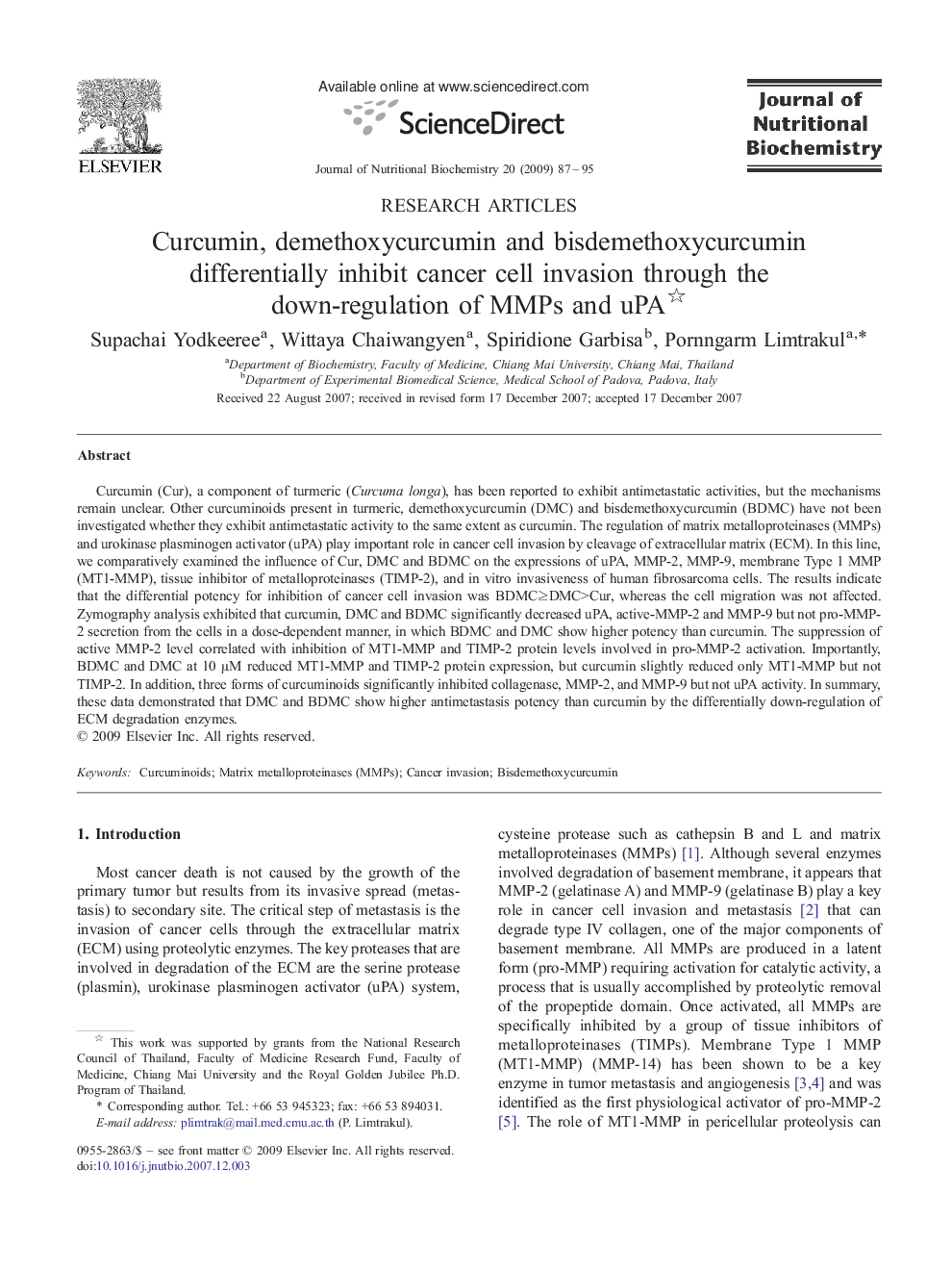| Article ID | Journal | Published Year | Pages | File Type |
|---|---|---|---|---|
| 1991036 | The Journal of Nutritional Biochemistry | 2009 | 9 Pages |
Curcumin (Cur), a component of turmeric (Curcuma longa), has been reported to exhibit antimetastatic activities, but the mechanisms remain unclear. Other curcuminoids present in turmeric, demethoxycurcumin (DMC) and bisdemethoxycurcumin (BDMC) have not been investigated whether they exhibit antimetastatic activity to the same extent as curcumin. The regulation of matrix metalloproteinases (MMPs) and urokinase plasminogen activator (uPA) play important role in cancer cell invasion by cleavage of extracellular matrix (ECM). In this line, we comparatively examined the influence of Cur, DMC and BDMC on the expressions of uPA, MMP-2, MMP-9, membrane Type 1 MMP (MT1-MMP), tissue inhibitor of metalloproteinases (TIMP-2), and in vitro invasiveness of human fibrosarcoma cells. The results indicate that the differential potency for inhibition of cancer cell invasion was BDMC≥DMC>Cur, whereas the cell migration was not affected. Zymography analysis exhibited that curcumin, DMC and BDMC significantly decreased uPA, active-MMP-2 and MMP-9 but not pro-MMP-2 secretion from the cells in a dose-dependent manner, in which BDMC and DMC show higher potency than curcumin. The suppression of active MMP-2 level correlated with inhibition of MT1-MMP and TIMP-2 protein levels involved in pro-MMP-2 activation. Importantly, BDMC and DMC at 10 μM reduced MT1-MMP and TIMP-2 protein expression, but curcumin slightly reduced only MT1-MMP but not TIMP-2. In addition, three forms of curcuminoids significantly inhibited collagenase, MMP-2, and MMP-9 but not uPA activity. In summary, these data demonstrated that DMC and BDMC show higher antimetastasis potency than curcumin by the differentially down-regulation of ECM degradation enzymes.
